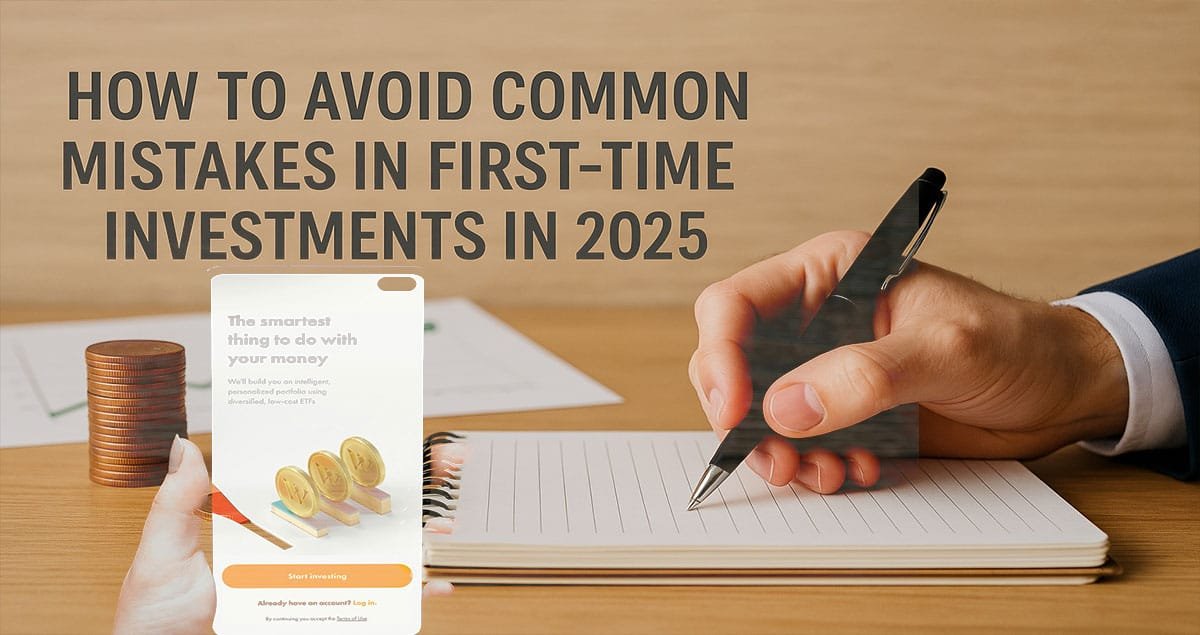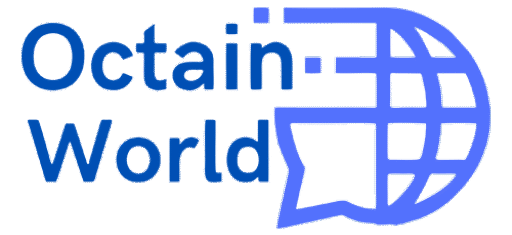Introduction to First-Time Investments
The transforming financial environment leads new investors, along with those making their first investments, to value well-founded decisions. New opportunities, together with challenges in 2025, require investors to understand explicitly how they can avoid making incorrect financial choices. Knowledge of distinct investment varieties serves as the essential key for people to handle market complexities successfully.

People who invest hold property of four main types – stocks alongside bonds, and real estate, together with mutual funds and other kinds of investments. Investors who are new to the market must study each investment option carefully because different types contain varying risks as well as profit potential. Alongside digital platform accessibility came new risks that initial investors must acknowledge to avoid falling victim to.
The three major mistakes newcomers make in 2025 involve insufficient research coupled with emotional investments and the absence of a clear investment strategy. Many inexperienced investors fail to acknowledge basic knowledge about financial mistake avoidance within investments, which results in swift financial losses that decrease their overall investment confidence. To benefit their investments, new investors should master important investing strategies that both minimize potential hazards and increase their earnings.
The blog exists to provide novice investors with practical strategies as well as methods to prevent beginner investor missteps during 2025. New investors who learn to manage risks while fully understanding what their investments entail will achieve financial success while developing a prosperous future. The goal is to supply knowledge about selecting appropriate investment plans matching personal targets while producing a sense of readiness for new investors to handle their investment paths.
Understanding Common Investment Mistakes
The experience of investing for beginners combines excitement with overwhelming concern. Recently invested individuals frequently encounter numerous mistakes that damage their ability to achieve financial success. Knowing these errors becomes vital for people wanting to prevent investment mistakes throughout 2025. New investors typically make their initial mistake by failing to conduct proper research. First-time investors tend to start immediate investments without obtaining proper knowledge about the assets they are buying. Examples of novice investors include how one buys stocks solely from peer recommendations without taking the time to research investment options properly. Significant losses will occur because new investors who have not recognized underlying investment risks will fail to understand their investment choices.

Emotional decision-making proves to be among the most common mistakes that investors make. Both feelings of anxiety and excitement impair judgment ability, thus creating impulsive investment decisions. When markets decline, new shareholders frequently sell their stocks impulsively, yet they typically would have benefited from market recovery. Investors who are new to the market usually make this error because they struggle with changes in stock prices. New investors need to create an investment strategy with risk management features to invest at a sustainable pace.
The success factor called diversification remains commonly unlabeled in most investment models. A large portion of first-time investments during 2025 will most likely focus on one single investment asset type and sector. The absence of investment diversity exposes new investors to unpredictable financial losses because of elevated risk levels. The strategic distribution of investments among several asset classes enables new investors to reduce risk and improve their opportunity for steady revenue generation over longer periods. New investors face serious problems because they fall victim to fraudulent investment schemes. New investors need to gain knowledge about real investment options because unscrupulous schemes especially target investors who lack fundamental investment experience.
Healthily recognizing typical errors permits investors to create better investment strategies for 2025 that will substantially improve their ability to make smart choices.
The Importance of Research and Education
Understanding investment options stands as the most essential requirement for beginner investors who will enter the market in 2025. Extensive research, along with personal education, increases decision-making abilities because it allows better information-based choices. The learning process about multiple investment avenues serves a critical purpose because it enables first-time investors to both detect and prevent dilemmas in their initial investment attempts.

Multiple learning resources exist for people wishing to enhance their financial capabilities. Fundamental trading information about the stock market, together with real estate data and bond details, and other investment choices, becomes accessible through online courses, webinar programs, and financial literacy programs. Novice investors can use articles along with tools provided by well-established financial websites and blogs. The available materials will assist investors in preventing 2025 investment errors through education that covers market analysis, along with statement interpretation and investing basics.
Research depends heavily on market trend understanding because it directly affects the results of investments. New investors must study economic indicators that modify the response of different investment classes. The acquired information helps investors develop critical judgment skills to determine the right times to buy, keep, or sell their investments. Investors use financial statement contents to evaluate operational efficiency and determine both the health levels and profitability potential of companies.
New investors must educate themselves about risk management, as it serves as their main core subject. Investors become equipped to manage market volatility through an accurate understanding of risk tolerance and effective loss-mitigation strategies. Creating an investment portfolio based on individual financial goals necessitates this knowledge to reduce unnecessary losses in investing.
First-time investors in 2025 must base their successful decision-making process on education investments and research acquisitions. Financial growth in 2025 becomes attainable for beginners through their informed resource utilization and avoidance of common investor mistakes.
Setting Realistic Investment Goals
All new investors must create realistic targets before entering financial markets. When creating financial goals, people need to evaluate how well their targets align with their complete financial plan. Students need to specify their investment objectives between building wealth or funding retirement, or education expenses before beginning their investments. When goals become clearly defined, it helps develop investment plans that also maintain stability in changing market conditions.

Your investment plan requires timing measurement as its main factor to determine its structure. A person’s investment strategies adapt between short-term targets and long-duration growth targets. New investors will experience diverse levels of risk in their initial investments during 2025; nevertheless, understanding the expected durations of their objectives will help discover appropriate funding components. Investors can facilitate substantial growth by being willing to bear greater risk when they have extended investment periods, yet must adopt a risk-averse strategy when their investment timelines remain brief.
Risk tolerance plays an important role as an important factor because it defines the amount of investment value fluctuation an investor can handle. Risk tolerance measurement enables investors to decide which assets should be included in their investment portfolio. All new investors must perform a personal evaluation of the way that they respond emotionally when markets fluctuate. Investors who want to minimize their financial errors during investment need to determine their distinct risk profile for tailoring their investment strategy.
You require a risk tolerance assessment together with time-based planning to establish realistic investment goals. The newest investor guidelines in 2025 demonstrate how element combination maximizes investment effectiveness. First-time investors who use this process will be able to escape common mistakes made by novices in investing during 2025 on their path towards secure financial prosperity.
Developing a Diversified Portfolio
First-time investors in investments need to grasp how vital it is to create a diversified portfolio. Through a portfolio containing stocks, bonds mutual funds, along with real estate investors can spread investment risk across different asset categories. By diversifying investments, new investors shield themselves from 2025 investment pitfalls and achieve a more stable financial outcome over time.

The essential principle in risk management requires investors to understand that different financial assets exhibit divergent market reactions. Stock market value swings because of market trends are larger compared to bonds, which maintain a steadier value. Distributed asset class investments help investors minimize possible investment losses that result from putting all funds in a single type of investment. Investors gain access to growth opportunities throughout various market sectors by using diversified investment strategies instead of trying to achieve maximum returns from just one industry.
In portfolio diversification development, one needs to focus on both various asset classes and geographical regions, and company sectors. Adding international investments to domestic placements provides extra protection against economic downfalls in specific regions or areas. Additional diversity between different industries serves to lower financial exposure from underperforming industrial sectors.
The main reason that new investors make wrong investment choices in 2025 is their excessive focus on risky assets. To select appropriate investments, one must blend assets according to their personal risk capacity and investment timeframe. New investors need to establish a proper balance between their financial aspirations and real market conditions. The smart investment advice for 2025 requires investors to check their portfolio frequently and rebalance it to match evolving financial targets, which enables maximum market performance.
The Role of Emotional Intelligence in Investing
The ability to manage emotions stands as the primary essential factor when making investment decisions. Believers of stock investment in 2025 need to understand emotional impacts on their trading behavior because this knowledge prevents typical financial mistakes. A combination of fear and greed, and anxiety affects investors’ decision-making behavior, thus causing them to take hasty actions that go against their overall strategy. Emotional competence for recognizing and controlling these emotions directly affects both new investors’ investment results and their handling of risks.

Emotions create the most risks regarding incorrect investment choices during times of market ups and downs. Investors often react by immediately disposing of their investments during periods of market uncertainty because they are terrified of standing to lose money, which frequently yields unnecessary financial setbacks. Stock prices that improve create feelings of overconfidence in investors who abandon their investment plan for trend-following instead. Preserving discipline through market movements stands as a vital factor for first-time investors who want successful outcomes in 2025.
Several methods exist to help people build emotional intelligence in their investing activities. Self-awareness improves through mindfulness practice, so investors can detect their emotional responses without making spontaneous reactions. Investors who prepare a detailed investment strategy will obtain a navigational tool for making decisions and reduce their tendency to make spontaneous choices during market instability. The process of regularly checking investment objectives helps to keep investors loyal to their long-term strategy instead of letting them be distracted by near-term market fluctuations.
A healthy environment to share experiences is available within investment groups or forums, which offer a base for support and knowledge. Current 2025 investor advice promotes that discussing both emotional development and challenges should occur through community participation. Enhancing emotional understanding helps investors develop skills that prevent common mistakes from beginner investors in the year 2025, thus fueling their investment success and sustainability.
Leveraging Professional Help: When and How
The financial market presents a challenging landscape to new investors entering in 2025. Professional financial advice stands out as the most essential choice for investors starting with their financial commitments. The acquisition of professional guidance will enable individuals to minimize their investment pitfalls in 2025, specifically among those who need to understand basic investing principles. Experienced financial advisors enhance outcome benefits when they produce financial recommendations aligned to investor targets and risk capacity, and holding period.

A person should evaluate their familiarity with financial subject matter as well as the investment choices available before deciding to hire a financial advisor. First-time investors seeking expert advice should consult a professional when dealing with 2025 investment decisions. Professional financial advisors present themselves as certified financial planners and investment managers alongside other specialized roles. Various types of advisors provide specific investment capabilities and expert levels, which means knowing their differences leads to selecting the appropriate investment approach.
Friends and family members may provide exceptional recommendations for reliable financial advisors. Notable organizations operate directories that contain listings of qualified professionals who are available for services. Potential clients need to conduct deep interviews after selecting an advisor to obtain information about their expertise, along with how they handle risk management for beginner investors. Learn about the advisor’s payment structure since their charges depend heavily on both their offered services and how they receive compensation.
Building an advisory connection depends on the development of trust as well as complete transparency. Investors need to have confidence in their advisor’s expertise to recommend shrewd investing recommendations for 2025, which will minimize investment losses. Working with a professional advisor proves to be an intelligent financial choice for people who wish to evade beginner investor challenges in 2025 and achieve monetary success.
Staying Informed: Trends and News in Investing
Every 2025 first-time investor needs access to present market trends, together with financial news, to create success in their investments. The investment environment evolves permanently, which enables a better understanding of financial errors in investing. Constant reading of high-quality content enables new investors to achieve successful results by making well-informed choices in their investments.

New investors should focus on reliable information from financial news websites, together with investment journals and market analysis reports. Both Reuters and Bloomberg, and CNBC provide detailed coverage about market trends and economic shifts, together with in-depth analyses from The Wall Street Journal and Financial Times. The market sentiment and investment methods provide information through webinars and podcasts that financial experts conduct for the benefit of individual investors. Different media sources combined provide a complete understanding of investing strategies.
The intake of information needs appropriate balancing methods. Beginners should restrict themselves from processing unimaginable quantities of data since too much information might generate paralysis when analyzing data. New investors should concentrate their data intake on particular market areas that support their investment approach. Creating scheduled times for market reviews combined with investment news digest sessions, allows investors to handle information better. You need to learn proper data interpretation since you should listen to experts while checking multiple opinions to create a clear understanding.
Study-related exposure to media trends helps investment newcomers select appropriate choices suitable for their long-term financial objectives. Investors who keep themselves updated and handle information effectively will develop enlightened strategies to decrease their risk of financial losses in the market. The ongoing learning process will prepare first-time investors to handle item investments better during 2025 so they can make confident decisions in complex investment environments.
Conclusion: The Journey to Successful Investing
The path to your first investments in 2025 demands careful attention to protect yourself from mistakes that most novices experience. Investors need full comprehension of financial markets to make well-informed choices because markets remain volatile in this particular year. New investors who grasp their initial errors during investment, along with proper education, boost their chances of achieving positive financial outcomes.
Successful investment starts with developing a clear investment plan because this provides the framework for achievement. Investment plan selection will fulfill your financial aims and provide comfort when handling financial complexity. Strategic investment methods for new investors require thorough research and the distribution of assets across different opportunities with safety precautions. Through such methods, investors can prevent financial loss in their investments while building a more robust asset base.
Strategic education about industry data and tactics makes it possible for investors to prevent the mistakes that new investors typically encounter during 2025. The combination of successful experiences and unsuccessful moments leads investors toward becoming more skilled in their investment strategies. Potential investors must access financial professionals together with educational resources that provide forums for investment learning to achieve better strategy execution in their financial investments.
Investing with benefit requires both making knowledgeable choices and dedicating oneself to learning. First-time investors who accept market changes through strategic adaptation will succeed in their investments. The principles serve as guides for individuals who want to start investments with assurance to convert obstacles into developmental prospects. Enhance your power through continuous learning of financial know-how, and you will reach your financial goals in 2025.






What’s up, internet? Anyone use 9pkrgamedownload before? Curious about the selection and download speeds. Let me know! Link is here: 9pkrgamedownload
Alright, searching for ‘gà chọi c1.com’! Praying for a solid stream and awesome fights. Enjoy here gà chọi c1.com.
If you’re looking for a new online casino to try, Khelostarcasino is worth a look. Decent selection of games and the site seems pretty legit. Do your research, but I’ve had a positive experience so far. See more: khelostarcasino
66b chính thức không yêu cầu KYC rườm rà ngay từ đầu. Bạn chỉ cần xác minh khi thực hiện giao dịch rút tiền đầu tiên – quy trình đơn giản, chỉ mất 2-3 phút. TONY02-02O